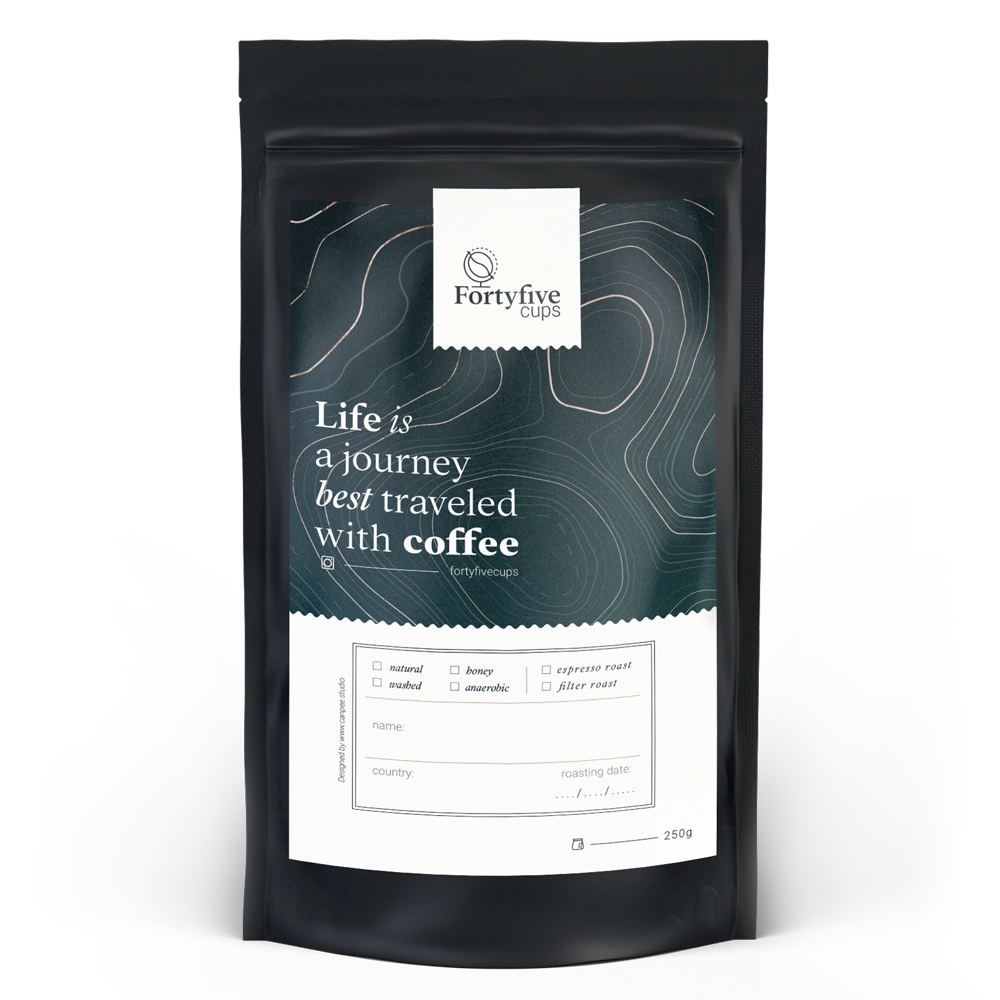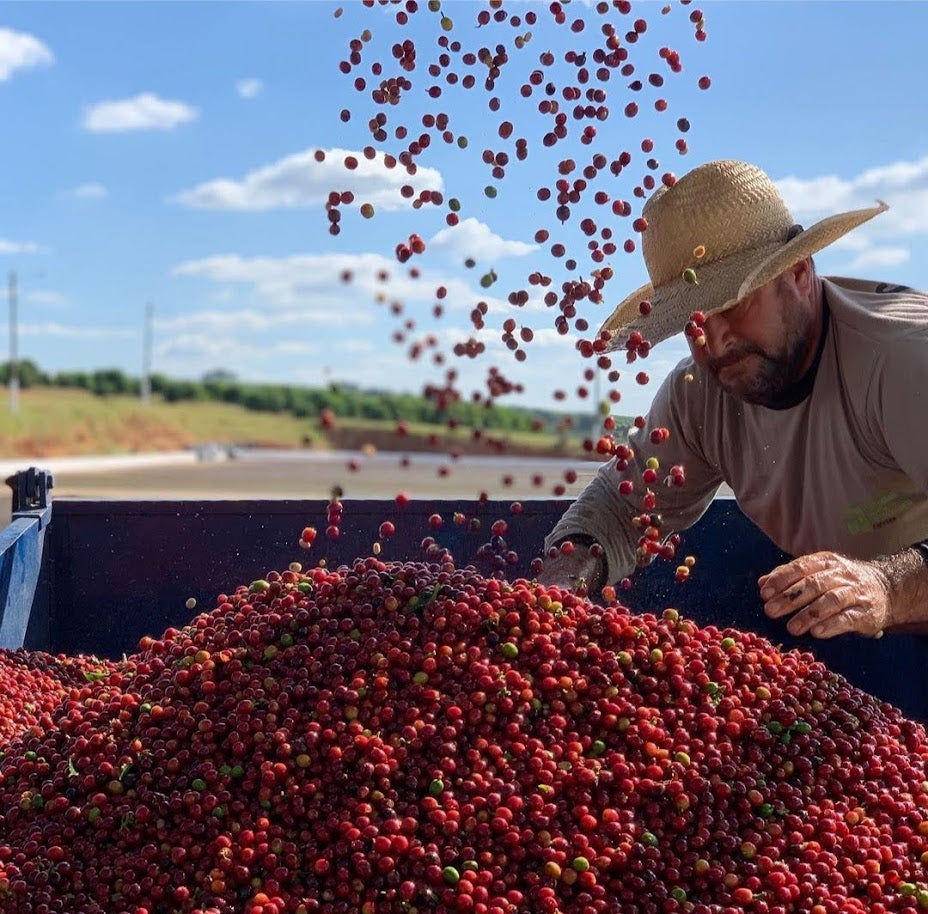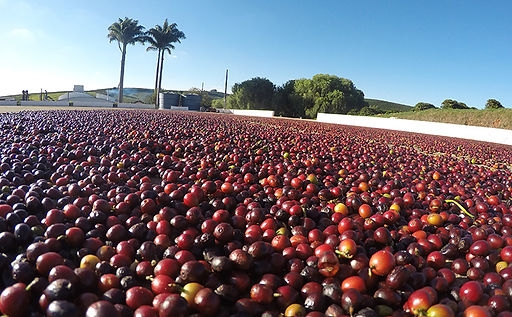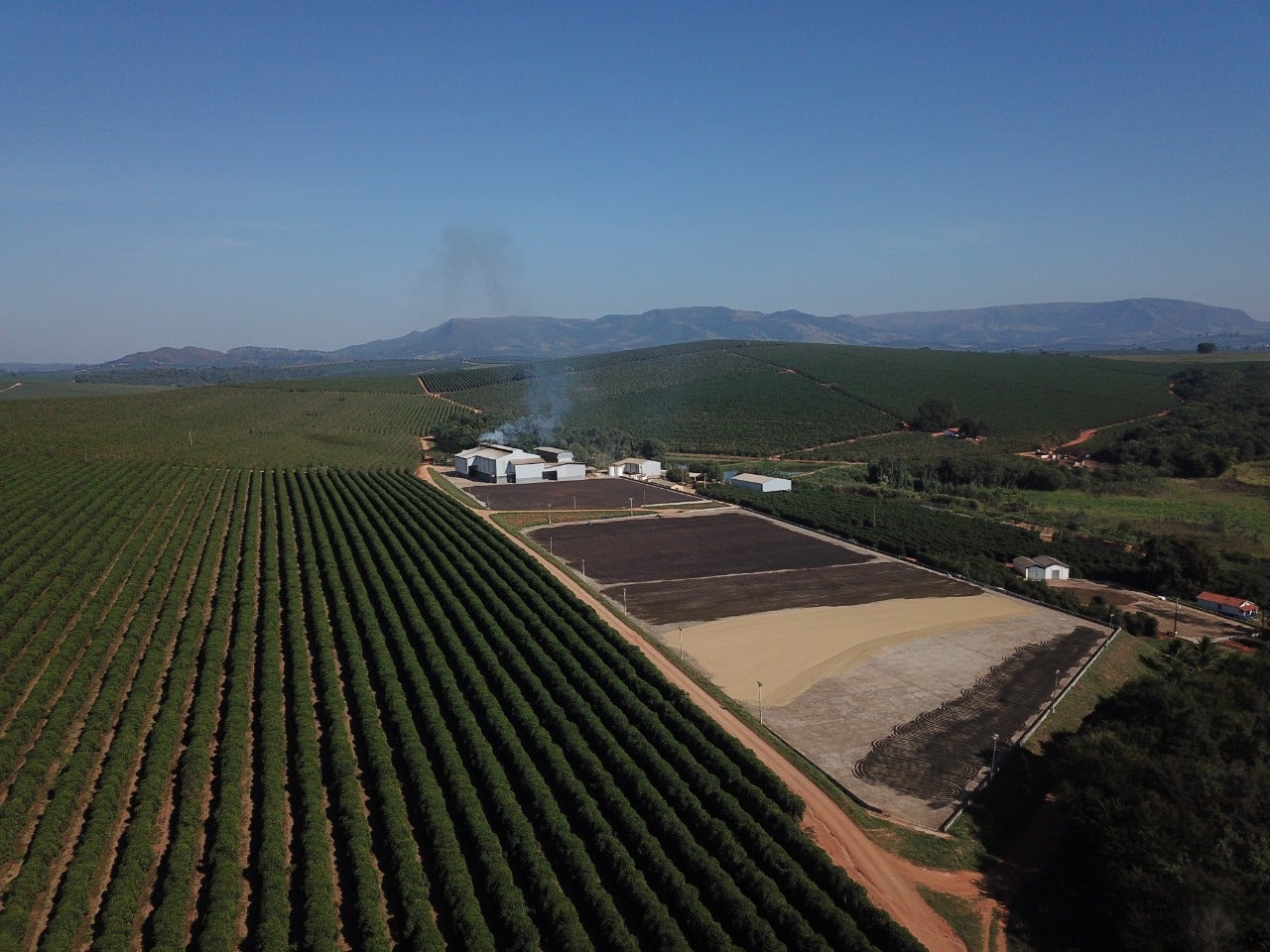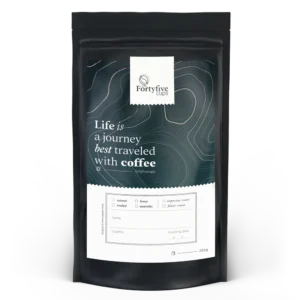Brazil – Santa Hedwirges (250g)
Discover the Coffee Taster’s Flavor Wheel
Boa Esperança – Sul de Minas – Brazil
Cultivar: red catuai
Process: dry (natural)
Cup profile: pineapple and blueberry with dark chocolate and sweet aftertaste. Perfect for your espresso and milk based drinks.
€ 12,00
Out of stock
Quality products
Sent within 24 hours
Secure payments
With a rich heritage spanning over 90 years, Fazenda Santa Hedwirges is deeply rooted in the art of coffee production. This sprawling estate covers a total of 2400 hectares, of which 1100 hectares are dedicated to cultivating a diverse range of varietals, including Yellow Catuai, Red Catuai, Topázio, Arara, Rubi, and Mundo Novo. Embracing a strong commitment to environmental and social sustainability, the farm strives to harmoniously coexist with the land and create a favorable working environment for its employees. Through continuous evaluation and implementation of sustainable practices, the farm actively promotes biodiversity by replanting native trees and adopting responsible approaches to sewage treatment and pesticide usage, safeguarding over 350 hectares of green areas.
The farm's passion for producing exceptional coffees has been passed down through generations, from father to son. Under the recent involvement of Hugo Brito, the farm has embarked on a journey to elevate the quality of its production, combining advancements in technology and agronomy. It boasts four independent production centers strategically situated across the estate, facilitating the separation of different microclimates and varietals. From the careful selection of varieties to a modern and efficient post-harvest process, their commitment to quality shines through. After four years of dedicated research, they have chosen a specific type of static box for drying the coffee, allowing for controlled and gradual drying while being moved once a day. This meticulous approach is supported by computer-controlled systems that ensure precise attention to detail, enabling effective volume management, especially during unfavorable weather conditions for patio drying.
Mechanical harvesting is employed, followed by the separation of cherries into green, cherry, and dry categories. The chosen lot is then subjected to an extended 19-day sun-drying period on the patio—an unusually long duration in Brazil where the typical drying time ranges from 7 to 10 days. This extended process allows the coffee to continue fermenting on the patio, resulting in pronounced fruit flavors in the cup. Once dried to an ideal moisture content of 11%, the coffee is rested for 10 days before hulling and storage.
our coffees
You’ll love it as much as we do!
FAQ
Answers to some of your questions
How can I store my coffee?
Our packages are designed to remain airtight even after opening. Simply make sure to close the zip at the back of the bag tightly. Then, store it in a dry place away from light.
Are your coffees fair trade?
At Fortyfive cups, you'll only find fair trade coffees as it's an integral part of our commitment.
What is specialty coffee?
Specialty coffee refers to high-quality coffee beans that are grown in specific regions, under specific conditions, and with particular attention to detail throughout the entire process, from farming to roasting. These beans are typically grown at higher altitudes and are often hand-picked to ensure the highest quality.
How is specialty coffee graded?
Specialty coffee is typically graded on a 100-point scale, with scores above 80 considered to be specialty-grade. These scores are based on the quality of the beans, including factors such as flavor, aroma, acidity, body, and aftertaste.
What is the difference between specialty coffee and commodity coffee?
One of the key differences between specialty coffee and commodity coffee is the focus on traceability and transparency. Specialty coffee is often traceable to specific farms or cooperatives, and there is a growing emphasis on direct trade relationships between coffee farmers and roasters.
What are some key aspects of coffee farming?
Growing conditions, harvesting, processing, sustainability, and fair trade are all important aspects of coffee farming.
What is terroir in coffee?
Terroir refers to the environmental factors, such as climate, soil, and topography, that influence the flavor and quality of the coffee beans.
How does terroir influence the flavor of coffee?
The specific conditions of the region where the coffee is grown can influence the aroma, acidity, body, and overall flavor profile of the coffee.
What are the benefits of using an electric roaster?
Electric roasters produce no emissions or pollutants, resulting in improved indoor and outdoor air quality. They are also often more energy-efficient than gas roasters, resulting in a lower carbon footprint over time.

